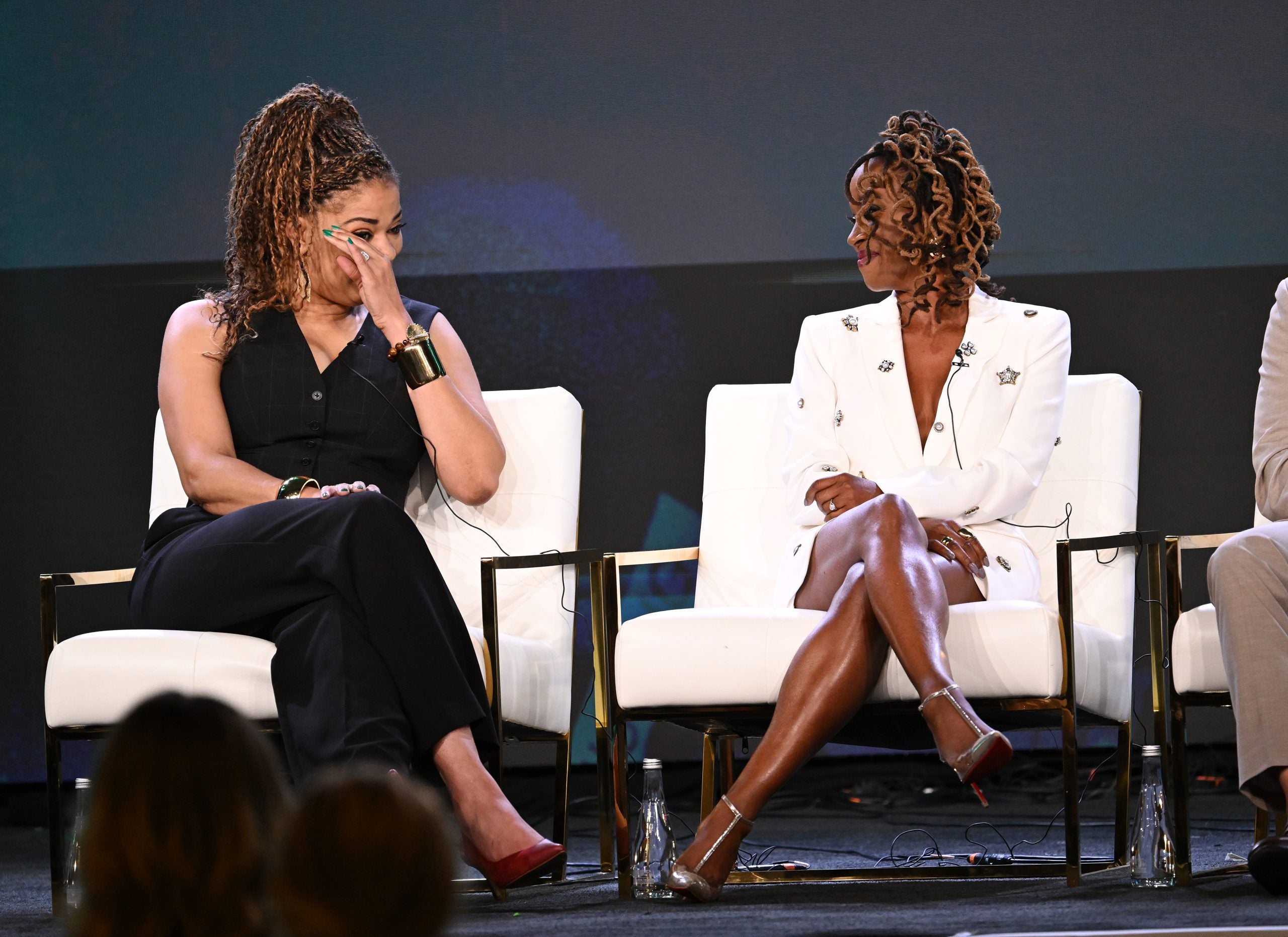Nkechi Okoro Carroll is doing the work. In an era where representation in media remains critical, she is telling stories in a way to both amplify and uplift. As the creator and executive producer of the NBC drama Found, she has crafted a gripping narrative that shines a light on the often-overlooked cases of missing individuals in America—those society deems disposable. Her work is both a bold act of advocacy and a call to action, addressing the systemic disparities in whose stories get told and whose lives are deemed valuable.
The roots of Found trace back to a specific moment of frustration and urgency for thee former Black Women In Hollywood honoree. “So it was somewhere about 2014, 2015… when we had those 14 missing Black and Brown girls in the DC area that, you know, we were sort of talking about within the community. And Black Twitter was sort of all over [it], but mainstream media wasn’t covering this. And I remember it just kept hitting me, like, I watch a lot of news. How am I not hearing about this? But I’m hearing about it on Black Twitter and that sort of stuff. And it really started frustrating me, because I was like, do our lives mean so little that we can have a situation where this many people are going missing, especially women, and it felt like the world didn’t care,” she explained.
The disappearance of these young girls in Washington, D.C., became a flashpoint in the national conversation about racial bias in media coverage. While communities of color rallied on social media to amplify awareness, mainstream outlets remained largely silent. The disparity highlighted an uncomfortable truth: missing Black and Brown children are far less likely to receive the same attention and resources as their white counterparts. This injustice haunted Okoro Carroll and ignited a determination to wield her storytelling abilities as a force for change.
Her frustration led her to channel this urgency into action. “I felt this desperate need to do something about it. Being a parent of Black kids in America and just wondering, like, what would I do if, God forbid, something happened to one of my children, and, neighbors didn’t care enough to look or the news didn’t care enough to, post the picture,” she said. “I believe God gives us all a tool when we’re down here. The tool he gave me was my keyboard.”
Out of that passion, the character of Gabi Mosley was born. “That was sort of the first gem of the idea and the role that public relations sort of plays in getting information out there about missing people. And then from that character, I just started building out the world and expanding it.”
Gabi Mosley is a flawed anti-hero grappling with healing that is incomplete. “As opposed to it being sort of the strong Black woman stereotype, and she’s superhuman and all things and saves the world at all times, what happens if she’s flawed?” Okoro Carroll explained. Mosley’s journey, including the dark twist of keeping her kidnapper in the basement, is a calling card to Okoro Carroll’s nuanced storytelling. “What happens when you haven’t done the full healing journey, and then something strikes that’s like, the grief of losing your father, and it triggers you to do this thing you never thought you would do? And that was where the twist came from.”
Beyond the screen, Found aims to spark real-world impact, and impact it has. The series has been nominated by the NAACP Image Awards and was recently nominated for a Critics Choice Award, among other nods. “My hope is that through the audience, some of it is just information, because I’ve had so many people come up to me and be like, I didn’t know, like I just I must not have been paying attention. I didn’t realize the disparity. But now I pay closer attention,” she said. “[People tell me] ‘If I see a missing poster, like on a lamp post, I pay closer attention. If I see something on social media, I pay closer attention.’ That was what I wanted. Because truthfully, we go into millions of homes through this show, and even one person suddenly plays closer attention on a street corner, or one person reposts a flyer they wouldn’t have posted before Found existed, then we’ve done our job. That’s one person that’s contributing to making sure that these forgotten ones… that’s one more person that’s making sure that person gets home, and that’s truly all we could ask for.”
Okoro Carroll shares the importance of truth in her work, explaining that while the storylines are fictionalized, the themes and the emotional core of the cases and character journeys are deeply rooted in real-life experiences shared by her and her fellow writers.

And the diversity showcased on the show’s “found wall” is a visual representation of its ethos. “Disposable comes in many shapes, sizes, colors. We call them the Forgotten Ones, but this world can put people in that forgotten category very quickly.”
“Because someone’s a sex worker, they don’t deserve to be found if they’re taken. Because someone is an addict, they don’t deserve to be found if something happens to them. Because someone is from the LGBTQ+ community, or because someone is elderly and you figure they’ve lived most of their life anyway, it does not mean that they do not deserve to be found. We don’t get to make that judgment call,” she asserted.
Her production company, Rock My Soul Productions, furthers her mission of amplifying marginalized voices. Under her leadership, the company has become a nurturing ground for emerging Black writers and creators. Her belief in mentorship and fostering talent stems from a personal ethos of creating opportunities for those who have historically been excluded from Hollywood’s inner circles.
At its core, Found challenges the perception of whose lives are worth saving. “No one gets to determine if someone’s life is disposable or not. It is not our job as the human race to determine if someone’s life is worth saving or not; everyone’s life is worth something,” she said.
The latter half of ‘Found’s’ second season premieres on Thursday, Jan. 16, 2025 with new episodes on NBC.







